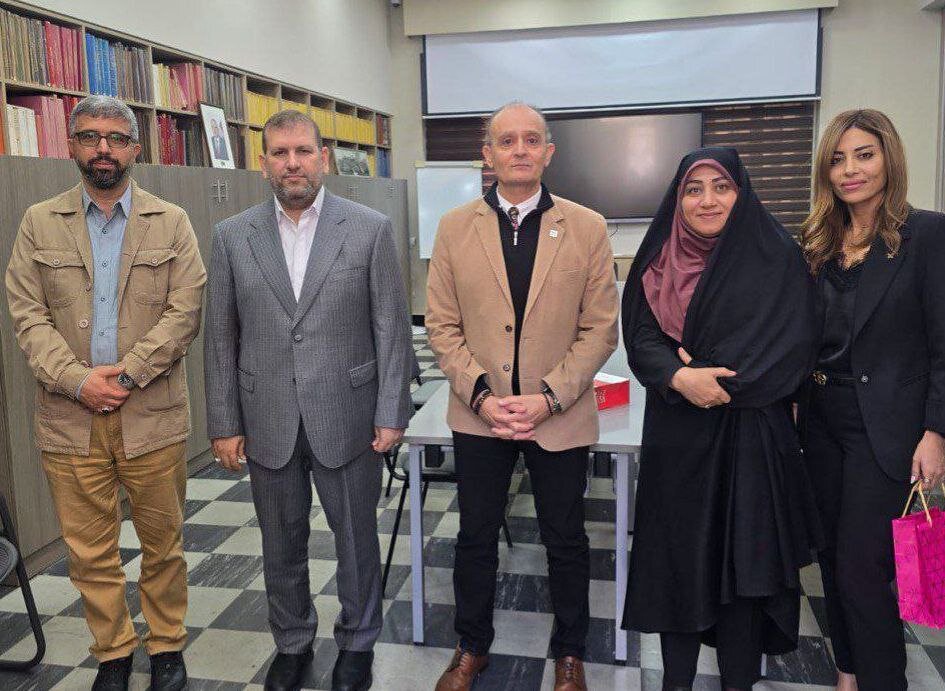Tehran – The Iranian Red Crescent Association (IRCS), the International Federation of the Red Cross and the Red Crescent Association (IFRC) have investigated the possibility of promoting joint efforts to address local challenges.
IRCS Secretary-General Meysam Afshar, IRCS Director of International Affairs, Razieh Alishvandi, reported that the IRCS website reported in a meeting with Hossam Elsharkawi, regional director of the IFRC in the Middle East and North Africa.
During a meeting in Lebanon on Thursday, El Sharqawi said in recent years that IRCS’ efforts will never be forgotten, particularly in areas affected by crisis and conflict, such as Gaza, Palestine, Syria and Lebanon.
Referring to the challenges ahead of humanitarian organizations and national society in carrying out their missions, the official said, “Here we are facing issues that prevent us from properly carrying out our responsibilities. In Gaza and many other areas, the situation is very difficult.”
On his part, AFSHAR highlighted human rights violations by Zionists over the past two years, condemning attacks on the Palestinian Red Crescent forces, killing eight medical personnel in Gaza.
Despite the large capacity in providing humanitarian commissions to war-affected areas, restrictions and obstacles are preventing aid from entering. He asked the IFRC to promote the deployment of humanitarian assistance in these areas.
Referring to the vulnerable situation in the region, AFSHAR highlighted the need to strengthen collaboration with other national societies, such as the IFRC and IRC.
The authorities also announced that the country is ready to hold humanitarian workshops in collaboration with the IFRC.
Alishvandi, in collaboration with the Korea International Cooperation Agency (KOICA), mentioned the joint IRCS and IFRC project, saying that the infrastructure for the implementation of the three-year project is being implemented in three Iranian provinces with an allocated budget of $2.7 million. She proposed that IFRC launch the project in the second month of spring, starting on April 21st.
Emphasizing the scientific and operational capabilities of the IRCS, officials proposed turning the country into a regional hub for specialized relief and rescue training.
IRCS is committed to developing regional and international collaborations in a variety of areas, including relief and rescue training and strengthening humanitarian capabilities, she added.
The proposal was well received by El Sharkawi. He emphasized the need to accurately develop regional hub structures and proposed holding a professional meeting to review and finalize the plans.
In November 2024, Xavier Castellanos Mosquera, Secretary-General for Coordinating the Development and Operations of the National Association of IFRC, held a meeting with Afshar and Alishvandi.
Recognizing the IRCS’ capabilities, Castellanos Mosquera emphasized that the IRC is well known worldwide for its high capabilities.
IFRC is interested in strengthening its collaboration with IRCS on conducting joint professional training courses with IRCS and organizing various teams, such as logistics teams, the IRCS website reports.
“The International Red Cross and Red Crescent Social Federations have different specialist groups and teams operating in different sectors. Given the capabilities, knowledge and valuable experience of Iran’s Red Crescent Society, we are eager to join these groups and teams to further support our colleagues and the Union.”
Afshar detailed the logistics and IRC capabilities in rescue and relief services, pharmaceutical and medical device production, domestic medical supplies and medical supplies products, medical and rehabilitation centres and 14 other countries.
mt/mg

